by Dr.Charlie Grantham
This essay is part manifesto and part a call for action.
The futurist part of me says that 2015-16 is a critical juncture for this planet. Myself, along with others, are of the belief that humanity has reached an inflection point. It can make some conscious choices to further our evolution or fall backwards in terms of quality of life, planet health and spiritual development.
Part of my motivation to write this is to intentionally seek out, evangelize, recruit and offer support to others of a like mind. In itself this is a demonstration of one of my suggested actions that is to deliberately, with focused intent reform your immediate social network.
What follows is an exposition of the five most general trajectories of change. We can, through retrograde actions and behaviors attempt to slow them down or stop them. That effort would be in vain as the momentum for their unfolding has been moving forward for about 4.5 billion years.
After looking at these forces, I will explore five strategic action initiates that must be taken into consideration to realize our potential at all levels of human organization—beginning with the person and culminating with a planetary self-organizing system.
The last part of this article is an explanation of four concrete, conscious things you can do to become an intentional evolutionary. And give birth to a more highly evolved order of existence. Read More
A New Era of Connection, Compassion and Consciousness:
The Phoenix Generation
by Kingsley L. Dennis -
In the years ahead we are going to see great change sweeping through our diverse human societies. It will be change not only brought about by intentional minds and willing hearts; but also by necessity, by coercion, and from an evolutionary imperative. The 21st century will be equivalent to the dramatic ‘flat Earth to round Earth’ shift that was thrust upon humanity centuries before. Some may say we are in the midst of a 3rd Industrial Revolution. Yet rather than referring to this transition as an ‘industrial’ one, I consider this profound shift as a Revolution in Human Being – or rather as a Revolution in Human Becoming.
The possibility of a genuine planetary civilization – with unity through diversity – and with the participation of an awakened and aware humanity, was never on the cards…until now. We have entered a phase where there will be new forms, new arrangements, new structures, new perspectives, and new emerging states of being.
We are, quite literally, shifting from one set of C-Values – Competition ~ Conflict ~ Control ~ Censorship – to a new set: Connection ~ Communication ~ Consciousness ~ Compassion. The world is re-arranging in order to come together in countless new ways – with innovative changes in our communication, our uses of technology, through conscious awareness, through people-centered action, and more. These are the seeds coming to harvest as part of a re-awakening, re-ordering, and re-balance upon this planet.
We should recognize that the issues at stake are much larger than governments – they are global and dispersed throughout the peoples of the world. These issues are also too important to be left in the hands of governments alone. The future will be about visioning beyond our limitations – thinking anew, and in ways we are currently unaccustomed to. This is the new consciousness – not conceiving or perceiving within the old patterns. External change is not enough if there is no real change within each one of us.
The current generation(s) will be the ones who will have to shoulder the mental and emotional responsibility of change as they are forced to let go of both external and internal systems and states that are no longer beneficial to our future development. This is why I refer to our current generation(s) as the ‘Bridge Generation’, as it will be required of us to straddle both worlds. Those generations that come after us will be born as change rather than being born into change – this is a slight yet very significant difference.
Within the Bridge Generation we are experiencing the increasing diffusion of knowledge and information with an unprecedented rapidity. We are also grappling with the early waves of technocratic control that use insidious forms of surveillance for social manipulation.
For those of us who accept to maintain this ‘bridge’, we will be required to deal with the grasping forces of authoritarian control whilst simultaneously assisting the transition clearly and calmly. It is a path that connects both sides during the transition. For this reason, it requires sincerity, integrity, and transparency. It is less about reliance upon external devices, and more about trusting one’s inner self and instincts... Read More
kingsleydennis.com
realitysandwich.com

realitysandwich.com

_______________________________
___________________________________
DEVELOPING A NEW WORLD VIEW
___________________________________
-
by Tomas of New Earth Project - A meme is “an idea, behavior or style that spreads from person to person within a culture.” en.wikipedia.org/wiki/Meme “Ubuntu is very difficult to render into a Western language. It speaks to the very essence of being human. When you want to give high praise to someone we say, “Yu, u Nobuntu”; he or she has Ubuntu. This means that they are generous,
-
by HeartMath - A planetary shift is under way. Many sense this shift internally and we perceive that time is accelerating. It's hard to keep up. We're constantly bombarded by an ever-increasing number of choices. Emotions peak and ebb to extremes in the span of hours, even minutes. Uncertainty seems to be on the rise about our personal direction and the world's. Amid the stress and
-
by Brendan D. Murphy - "In a time of drastic change, it is the learners who inherit the future. The learned usually find themselves equipped to live in a world that no longer exists." —Eric Hoffer Kuhn states in The Structure of Scientific Revolutions that the actualization of a scientific paradigm is achieved by increasing the extent of the match between its facts and its
-
by Duane Elgin - Einstein said that if we cannot explain something simply, then we don't understand it. So, a core question is: What does 'integral' mean, in simple terms, for our world in transition -- in less than 400 pages of text and 20 hours of explanation? Is there a simple, universal, emotionally powerful, 'integral narrative' that can be told? Or, is integral theory so
-
by Kingsley Dennis - Reconciling Science and Spirituality: As a global species we may be in the throes of passing through a transition towards a different state of consciousness. This new state may likely be characterized by quantum properties such as coherence and non-local field information. Such a ‘consciousness field’ would transform how we relate to other people, the world
-
by Justine Huxley - What’s the most exciting experience you’ve had collaborating across differences in faith, culture, and ideology? Have you ever entered into collaborative relationships and been truly surprised by the result? What enabled those experiences to happen? In a group I facilitate at St Ethelburga’s Centre for Reconciliation and Peace, in London, someone recently asked, “
-
by Terry Patten - At the Integral Theory Conference a couple of weeks ago, I had the pleasure of participating in a panel on Integral Politics. During the discussion, I found myself outlining a 3-part strategy for evolutionary activism—using the metaphor of Bodhidharma, the bushy-eyebrowed sage who is said to have brought Buddhism to China from India and to have founded Chinese martial
-
by George Pór - An exploration into the next stage of human consciousness: This contribution to the “Mindfulness and Compassion” conference is focused on where the moral compass of integral mindfulness points. Being integrally mindful is about taking mindfulness off the meditation cushion and infusing all dimensions of our life with it; not only the life of you and me but also of
-
by Phillip Elton Collins - With a world filled with separation, duality and often confrontation, perhaps it is time to revisit the reality of Oneness within your existence in order to create a new reality of equality, harmony and balance. How does that feel? Prior to understanding Oneness, it is essential to understand what creates the opposite of Oneness. It is your life
- Synchronicity and the Secret of the Co-Creatorby Robert Torres - If you believe synchronicity is simply coincidence, then you haven’t read any of the top experts in the field. The famous psychotherapist Carl Gustav Jung coined the term synchronicity in the 1920s to reference the alignment of universal forces with a person’s experiences. Synchronicity: is the experience of two or more events that are apparently causally unrelated
- Combining Co-Creation and Collective IntelligenceWhy combining co-creation and collective intelligence? It is a common trend to be in favour of open innovation and co-creation. We have all heard about the wisdom of crowds, bringing the outside in, and we all believe in "none of us is as smart as all of us”. Collective wisdom considers “multiple opinions and forms of intelligence. Wisdom in groups is demonstrated by insight, good sense,
- Becoming an Intentional Evolutionaryby Paul Lenda - You would be hard-pressed to find someone that does not feel that there are massive changes happening on our planet, whether they are environmental, societal, political, or otherwise. The reasons for the cornucopia of paradigm shifts are many and involve a high degree of multi-faceted complexity. Now that we are collectively at a crossroads where our decisions will
- Accelerating Our Collective Emergence into a New Paradigmby Paul Lenda - While a few hundred years ago there were a handful of luminaries shining their light on the waters of human conscious awareness, today there are thousands upon thousands. I remember 7 years ago I had to practically go on a wild goose chase to “find the others” and now I see so many awakened intentional evolutionaries that it’s truly inspiring and hope-inducing. Global
- The Interspiritual Revolutionby Rory McEntee and Adam Bucko - “We must all achieve our identity on the basis of a radical authenticity… [for] it is only in the real world of the person – neither singular nor plural – that the crucial factors influencing the course of the universe are at work.” – Raimundo Panikkar, “The Silence of God,” Introduction p. xviii RE-ENVISIONING SPIRITUALITY There can be little
- Synchronicity and the Secret of the Co-Creator
Leaping Into Possibility
by Jon Freeman
It is 40 years since the magazine published Prof. Clare W. Graves’ article titled “Human Nature Prepares for a Momentous Leap,” which contained predictions for our future that have proved remarkably prescient. The conditions that Graves anticipated are those we now experience. Graves’ theory regards human development as an adaptive process in which our Values systems, the codes that we perceive, will enable us to thrive and evolve to fit us to changing life conditions. Spiral Dynamics integral (as the theory subsequently became) predicted the current state of the world. That is the first mark of its potency. The second is that it described what we would need to do to meet today’s challenges.
Fast forward to today. How might we describe our conditions now? We have recently skirted economic meltdown. We are faced with considerable challenges like habitat damage, resource mismanagement, global terrorism, climatic instability, population growth and loss of species diversity, many of which derive from a short-term and materialist mind-set. These are already compounding one another or threatening to do so. The need for solutions seems urgent, yet we don’t seem to have evolved our thinking systems to devise, still less implement, those solutions. As yet, we have not made the Momentous Leap.
The leap is a shift in consciousness. The familiar statement attributed to Einstein, that we cannot solve our problems using the thinking systems that created them, is truer than ever. Our future depends on it. Graves himself saw three possible paths. We might regress through breakdown and collapse to primitive conditions. We might be “stuck in an Orwellian nightmare of tyrannical and manipulative governments operating under a gloss of moralisticdouble-think and sham humanitarianism.”
Recent detention laws and attempts at Internet censorship and data harvesting show how present this possibility remains. The third path, the one requiring a leap of consciousness, is the only optimistic scenario. We could emerge into a new level that would stabilise our world and maintain the progress of human existence. I am an optimist and still favour this outcome where the human spirit continues to overcome such tyrannies. What will this require of us?
Recent detention laws and attempts at Internet censorship and data harvesting show how present this possibility remains. The third path, the one requiring a leap of consciousness, is the only optimistic scenario. We could emerge into a new level that would stabilise our world and maintain the progress of human existence. I am an optimist and still favour this outcome where the human spirit continues to overcome such tyrannies. What will this require of us?
We are aware of our position as latecomers to a 4-billion year biological evolution but less so of the psychological and societal development that has since taken place. I am talking here about ‘conscious evolution.’ In some of what follows, I will try to describe this evolutionary trajectory and indicate why I am an optimist, but I do not see conscious evolution as a done deal, and I certainly don’t see it as a passive or internal process. It requires action—coherent and integrated action.
Societal evolution has been a progression in numbers and complexity. It has taken us from small survival bands through tribes and warlord empires to the dawn of western civilisation with its laws and commercial systems. From our human perspective 1,000 years is long history but it is only 1% of homo sapiens’ existence and only 10% of the time since the Neolithic hunter-gather bands gave way to tribes. Psychosocial changes greatly outpace biological ones. That progression has accelerated through the industrial and technological revolutions into the twentieth century with its rise of human focus on human bonding and on equality amidst diversity.
Only in the last 100 years do we have psychological theories because this stage of development is strongly inclined to explore who we are and what human nature is. Just as the previous modernist technological stage (still continuing, of course) sought mastery over the material world, we responded to its materialist focus with the desire to master the psychosocial one. This is also a transition from faith in the material world to the post-modernist questioning of objective reality. In the ten thousand years since the first tribal settlements, the human population has grown a thousand-fold from perhaps 5 million to 7 billion. Many of our cities contain more people than that first number. Each of the stages raised complexity—towns to cities to global inter-connectedness.
Only in the last 100 years do we have psychological theories because this stage of development is strongly inclined to explore who we are and what human nature is. Just as the previous modernist technological stage (still continuing, of course) sought mastery over the material world, we responded to its materialist focus with the desire to master the psychosocial one. This is also a transition from faith in the material world to the post-modernist questioning of objective reality. In the ten thousand years since the first tribal settlements, the human population has grown a thousand-fold from perhaps 5 million to 7 billion. Many of our cities contain more people than that first number. Each of the stages raised complexity—towns to cities to global inter-connectedness.
The Coming Stage: Coping with Complexity
If Graves’ view of our evolving consciousness was correct—if our Values systems and priority codes are psychosocial responses that adapt to changing life conditions—where are we now in our journey? We have already indicated the multiple strands of breakdown, simultaneous and urgent compound challenges all arising at speeds which defy the systems we have built. It is no wonder that two-thirds of the 1,500 global CEOs surveyed by IBM in 2011 cited ‘unpredictability’ as their biggest concern. These are our life conditions and none of our previous responses will be sufficient to tackle this chaotic turmoil. So what response is needed?
No previous shift has been as stark as this; we are in a new scenario. No previous stage in development has had the overview that we have. Each previous stage tended to dismiss its predecessors; warlords did not want to go back to settled tribes and the technological order rejects with Dawkins’ vehemence the religious dogma of its predecessor. If we are to avoid mutual destruction, now must be the time when humans are capable of seeing and accepting what has gone before.
We need laws and commercial systems, we need technological benefits and we don’t want to abandon our new understandings of who we are or lose the bonds that we have created. We need to be integrative, seeking to blend, balance and mesh all previous perspectives. Post-postmodernism adopts shifting and oscillating viewpoints. However, this integration is just the beginning; the leap requires yet more.
We need laws and commercial systems, we need technological benefits and we don’t want to abandon our new understandings of who we are or lose the bonds that we have created. We need to be integrative, seeking to blend, balance and mesh all previous perspectives. Post-postmodernism adopts shifting and oscillating viewpoints. However, this integration is just the beginning; the leap requires yet more.
In earlier, slower-paced and less complex times we could attempt to predict the outcome of our actions. Our uniquely human ability to project the future seemed to work. We could utilise cause-and-effect thinking and make plans. If we got it wrong, that was because the Gods had other ideas, because we didn’t know enough or because Murphy’s Law lives; it was not because those linear processes themselves were flawed.
You could argue that our faith in that linear predictability was always behind the game but, either way, it is what we have done and it is still how many of us think and how most of our systems attempt to operate. Governments still make plans and formulate policies, and we as citizens expect that they should get that right. Media comment becomes severely punitive if a government changes its policy, treating this as weakness and talking of ‘U-turns.’
You could argue that our faith in that linear predictability was always behind the game but, either way, it is what we have done and it is still how many of us think and how most of our systems attempt to operate. Governments still make plans and formulate policies, and we as citizens expect that they should get that right. Media comment becomes severely punitive if a government changes its policy, treating this as weakness and talking of ‘U-turns.’
The Challenge of Non-Linear Conditions
None of these ways are capable of dealing with high-speed, complex, multi-variable interactions. By the time we have figured out the cause-and-effect, formulated a plan, analysed it in depth and then battered it out of shape with consensus-forming processes, the conditions have irrevocably changed. Our current challenges demand a huge shift out of linear thinking into more intuitive, presenced, flexible and responsive ways of being. If a government is not repeatedly adjusting its direction, it is not responding to the dynamic movement of emergent reality. You cannot surf the wave by sitting on the beach computing the sea’s motion and you cannot build a ship big enough to make the waves irrelevant.
Every previous adaptive system has added to our toolkit. Humans transcend warlord groupings when the costs and stresses of conflict become intolerable. The next stage is the one we are attempting and probably failing to establish in Afghanistan. In our history, that stage brought the notion of basic rules and order—codes that we could live by—and with it the basics of science—planetary motion, gravity and fundamentals of engineering. Those ordering systems show up in Afghanistan as the Taliban—a form of transition that is unacceptable to our pluralist views. Our ordering Values now provide us with repeatable processes and boxes to tick that say we have done the right things, but previously they brought the Spanish Inquisition.
The following stage built on top of those rules, finding out how to stretch, bend and exploit them, how to turn them into the massively creative technological capacities that put men on the moon and gave us world-wide connectivity. But both these stages also fostered illusions about the nature of the world and our human place in it, seeing the material and spiritual worlds as separate. In the first, we are the children of an external creator (God) after ‘spirit moved upon the face of the deep.’ The second made us Techno-gods. Science views spirit as an imaginary accident of human brain mechanics. Consciousness, if it exists at all, is a psychological phenomenon.
The following stage built on top of those rules, finding out how to stretch, bend and exploit them, how to turn them into the massively creative technological capacities that put men on the moon and gave us world-wide connectivity. But both these stages also fostered illusions about the nature of the world and our human place in it, seeing the material and spiritual worlds as separate. In the first, we are the children of an external creator (God) after ‘spirit moved upon the face of the deep.’ The second made us Techno-gods. Science views spirit as an imaginary accident of human brain mechanics. Consciousness, if it exists at all, is a psychological phenomenon.
Conscious evolution takes place through Values system changes but many of us now have a more spiritual context for ‘consciousness.’ Science denies the ground this view would stand on and reduces our confidence that we know what we know. The reality that science does not yet recognise is that consciousness is a fundamental feature of the Universe. It is possible to show this throughout biology and physics and to underpin that knowledge with hard experimental data. It is also possible to validate that knowledge through systematic study of experiential data and philosophical understanding. We will need this new scientific view.
We are used to hearing and maybe have said ourselves that ‘everything is energy’ and we comfort ourselves with the mysteries of quantum uncertainty, which tell us that science can’t know everything. While these responses are not wrong, they fall short of useful knowledge. To say that ‘everything is energy’ misses the real question. What happens when energy becomes matter? Why does the world take the shape it does, and why are we the way that we are? The extremely short answer is that the whole Universe is an experiment of self-creation. When the first particles were created, the patterns that worked were remembered, carried in a realm of information that is what the Universe knows of itself. On top of those patterns, from those building blocks, more complex patterns arise and everything about them is stored in the universe of information. These patterns and events become evolutionary history and they become you and me. Consciousness is within and without; it is what we know of ourselves, what we know of the information with which the universe has defined its existence.
Empowering our Creative Potential
When we understand this, conscious evolution takes on a new potency. We are, for better or worse, the self-aware leading edge of a co-creative, self-exploring Universe. What then happens when we bring this knowledge back into the right-now, real-time issues of human thriving and apply that knowledge to today’s challenges?
At human evolution’s leading edge, many of us have engaged with the oneness of creation. Meditators and mystics know experientially that we are not separate and that each of us is a part of something transcendent, two eyes among the myriad eyes of creation. We may also have experienced intuitive knowing of that which science says we could not know. Nevertheless, much of the time we retreat inside our boundaries, the limits of our own skin. We relapse into believing that what exists and what is already known define what is possible.
Our habits of linear thinking caused us to form patterns. Choices that we have made in the past became our guides for the future. Some of those choices and rules are not even our own—they are programs that our parents and schooling gave us or simply conventional beliefs. These belief systems about what is right or wrong become our limitations.
We attempt our leap into the turbulence of the unknown, not knowing what it will be like when we get there, yet carrying a suitcase of previous conclusions. Since our predictions are inadequate, we need instead to land with a capability to be present, to detect what is. We then need to be able to make free choices that are not preconditioned by our past habits and beliefs. We need our knowledge for sure, but what we know must be capable of continuous modification. Nothing is fixed; we must make fresh choices.
We attempt our leap into the turbulence of the unknown, not knowing what it will be like when we get there, yet carrying a suitcase of previous conclusions. Since our predictions are inadequate, we need instead to land with a capability to be present, to detect what is. We then need to be able to make free choices that are not preconditioned by our past habits and beliefs. We need our knowledge for sure, but what we know must be capable of continuous modification. Nothing is fixed; we must make fresh choices.
This means that we must hold our theories lightly, the hard science, the psychology and the brilliance of great maps like Spiral Dynamics or Integral. We may have grasped that the map is not the territory; which do we live in? Can we attempt to meet life’s challenges from inner consciousness—expecting that our thoughts will impact the wider field of consciousness to create our reality? We could, but only if we wish catastrophically to limit the outcomes.
The field of consciousness contains the defining information for all that exists.
All that exists includes our collective beliefs, our communities, the food we eat, the homes we inhabit and wider societal realities like corporate finance, pharmaceutical medicine and correctional institutions. All of those were constructed based on the Values systems and priority codes of earlier times. They systematised the beliefs we had about what was possible, what could work and what we wished to make work.
All that exists includes our collective beliefs, our communities, the food we eat, the homes we inhabit and wider societal realities like corporate finance, pharmaceutical medicine and correctional institutions. All of those were constructed based on the Values systems and priority codes of earlier times. They systematised the beliefs we had about what was possible, what could work and what we wished to make work.
Previous evolutionary stages were pervaded by our fear and our determination to survive. Humanity has done really well at surviving; there are seven billion of us. That survival is not secure yet and many are not yet thriving. There are two directions we could follow. Will things improve if we do more of the same? I don’t think so and I doubt that you do. That means there is no viable alternative to the leap. The only direction we can choose is into the new.
We must let go of the illusory security of our previous conclusions to embrace the unknown. We must learn fearlessly to choose and choose again so that we are in continual dynamic re-balancing, responding in short increments to changing conditions in the non-linear world. We allow and engage our intuitive ability and our spiritual wisdom so we can move out of the prison where ‘nothing except matter exists.’ Giving up our preconceptions allows us to see a wider range of possibilities or to emerge possibilities that we could not even see.
This is an active world; theory must lead to action. We cannot do everything from within because we must engage with each other. We must create the new aspects of the external world that support our future and we must re-engineer our societal systems to reflect the new blend of priorities, the integrative big-picture flows where knowing is more important than emotion. I suggest this is why we are here, why we are the ones with the tools, the great theories and the deep awareness. This is the beginning of days. Let us leap into action, ready for possibility.

About the Author: Jon Freeman, A generalist in an age of over-specialization, Jon is a thought-leader, systems thinker and visionary with a passion for propelling the change in mindset and Values that will support us all through the major transition that faces humanity. This passion translates into writing, blogging and speaking on topics such as our relationships with money, conscious capitalism, and the science of consciousness.
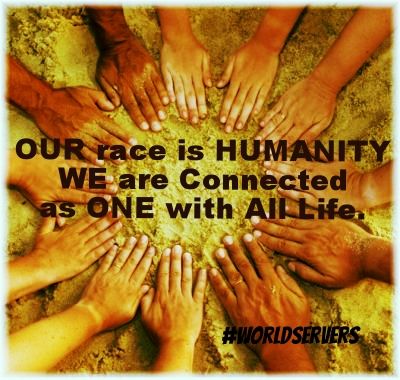
Global Citizens Movement
Kosmos has been deeply committed to the emerging planetary civilization and world community since its founding in 2001. Since 1987 Nancy Roof has been active in the international community at the United Nations where Kosmos Associates Inc. is now in Consultative Status.
It is only recently, however, that a groundswell of activists and civil society organizations outside of the UN has realized the necessity of connecting together to have an impact on the critical global issues of our time.
The Widening Circle (TWC) movement to catalyze a Global Citizens Movement was called together in 2011 by Paul Raskin, President of the Tellus Foundation. There was widespread awareness at that time that our most challenging problems are global in scale and in a world connected by the Internet and increasingly interdependent that all humanity is involved.
Nancy Roof served as one of the 5 core members of the Coordinating Circle, along with representatives from Pakistan, South Africa, UK and US. Although our goal of creating global circles based on issues and geographical diversity has not been reached, we hold out promise for this effort in the future. Paul Raskin has written some of the most important documents on the compelling reasons for a global citizens movement to complement governments and corporations.
In November 2013 Nancy was invited to be one of 200 participants in a Global Citizens Movement in Johannesburg, South Africa. The founders presented a format deeply participatory and ended with an evolving statement of where we stood, called The Johannesburg Compass. This promises to be a substantial movement—with a series of conferences in 2014 and 2015 to continue the work and an active website open for your participation.
Featured Articles about the Global Citizens Movement
Building a Global Citizens Movement
The Johannesburg Compass: Questions and Orientations
1. Who are we? As citizens, global and local, and participants of the ‘Building a Global Citizens Movement Johannesburg Conference 2013’, we acknowledge our responsibility for the planet and for humanity and we take responsibility for our individual and collective actions. Collectively, we acknowledge that to reach a just and sustainable world which does not […]
How to change the world?
Those concerned about the dangerous drift of global development are asking this question with increasing urgency. Dominant institutions have proved too timorous or too venal for meeting the environmental and social challenges of our time. Instead, an adequate response requires us to imagine the awakening of a new social actor: a coordinated global citizens movement (GCM) struggling on all fronts toward a just and sustainable planetary civilization.
The Great Transition: Journey of an Idea
The jury is still out on whether the Great Transition Initiative’s hoped-for Great Transition will be realized; its achievement rests on the emergence of a planetary movement of concerned citizens buoyed by the conviction that together they can change the world.
What Does it Mean to be a Global Citizen?
At The Global Citizens’ Initiative we say that a “global citizen is someone who identifies with being part of an emerging world community and whose actions contribute to building this community’s values and practices.”
Global Citizens, Part I
Global Citizens | Part I
Five Levels of Global Citizens When basic freedoms take root, citizenship begins to evolve. To understand this process of evolution, let us use the analogy of computer software, which is continually being upgraded. Today, in almost every society around the world, five levels of ‘civic software’ are in operation. As global citizens, it is our […]
More references:
The Widening Circle:wideningcircle.org
Join the Global Citizens Movement: movement.deeep.org
Report of the Johannesburg Conference: deeep.org/global-conferences/378.html
The Global Citizens Initiative: theglobalcitizensinitiative.org



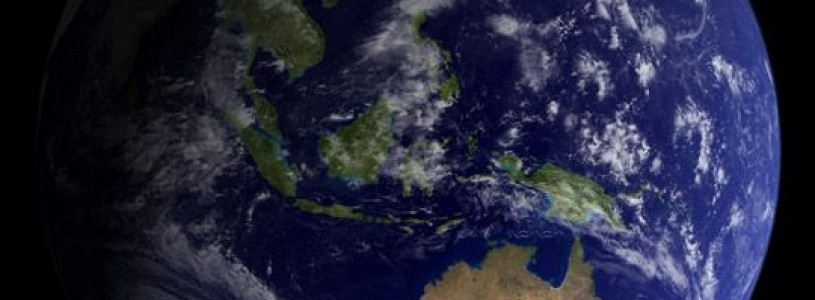


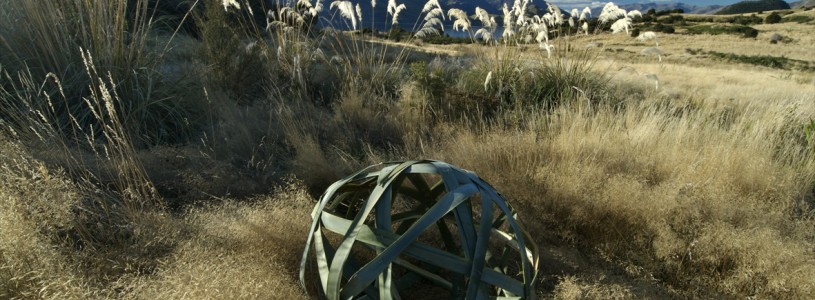
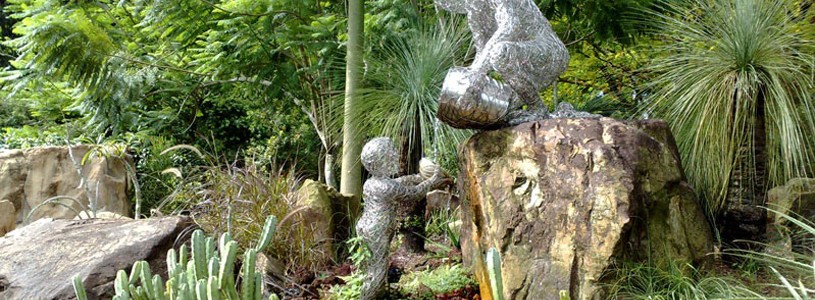

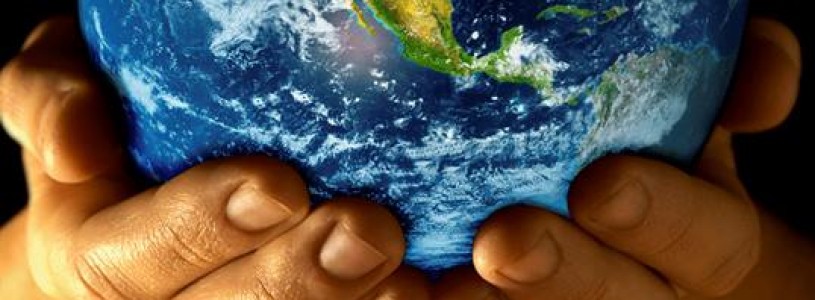
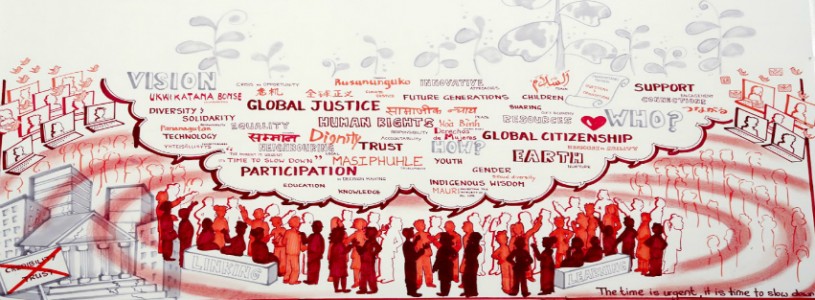
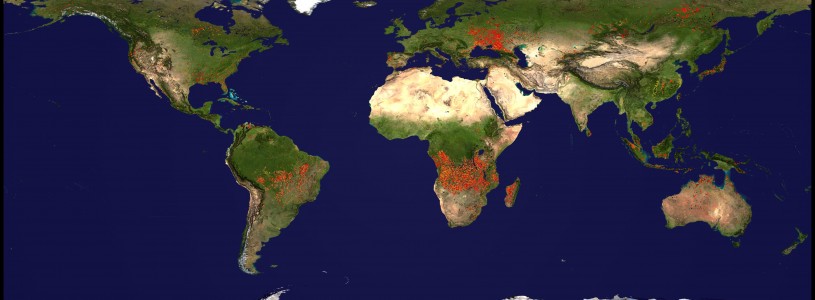
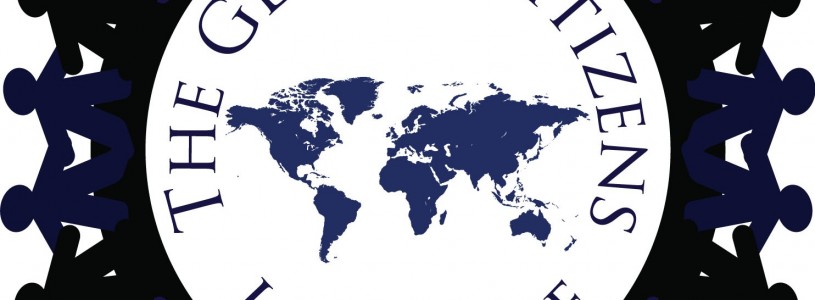

No comments:
Post a Comment